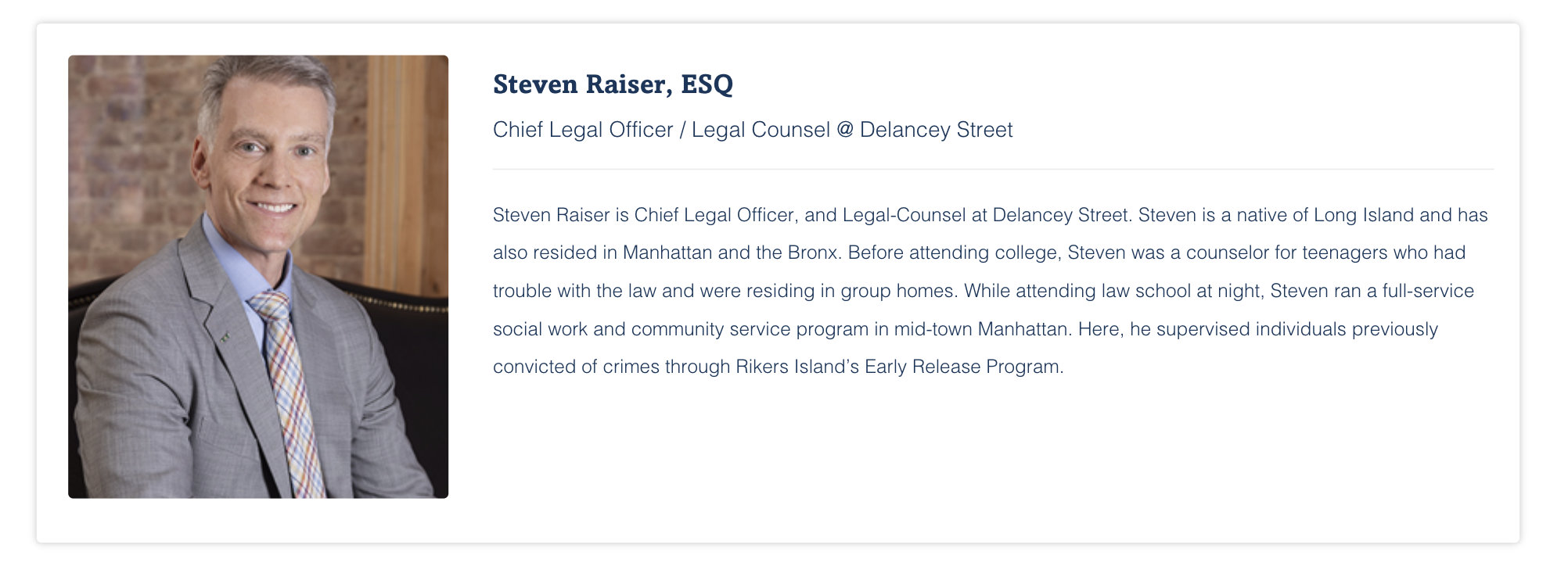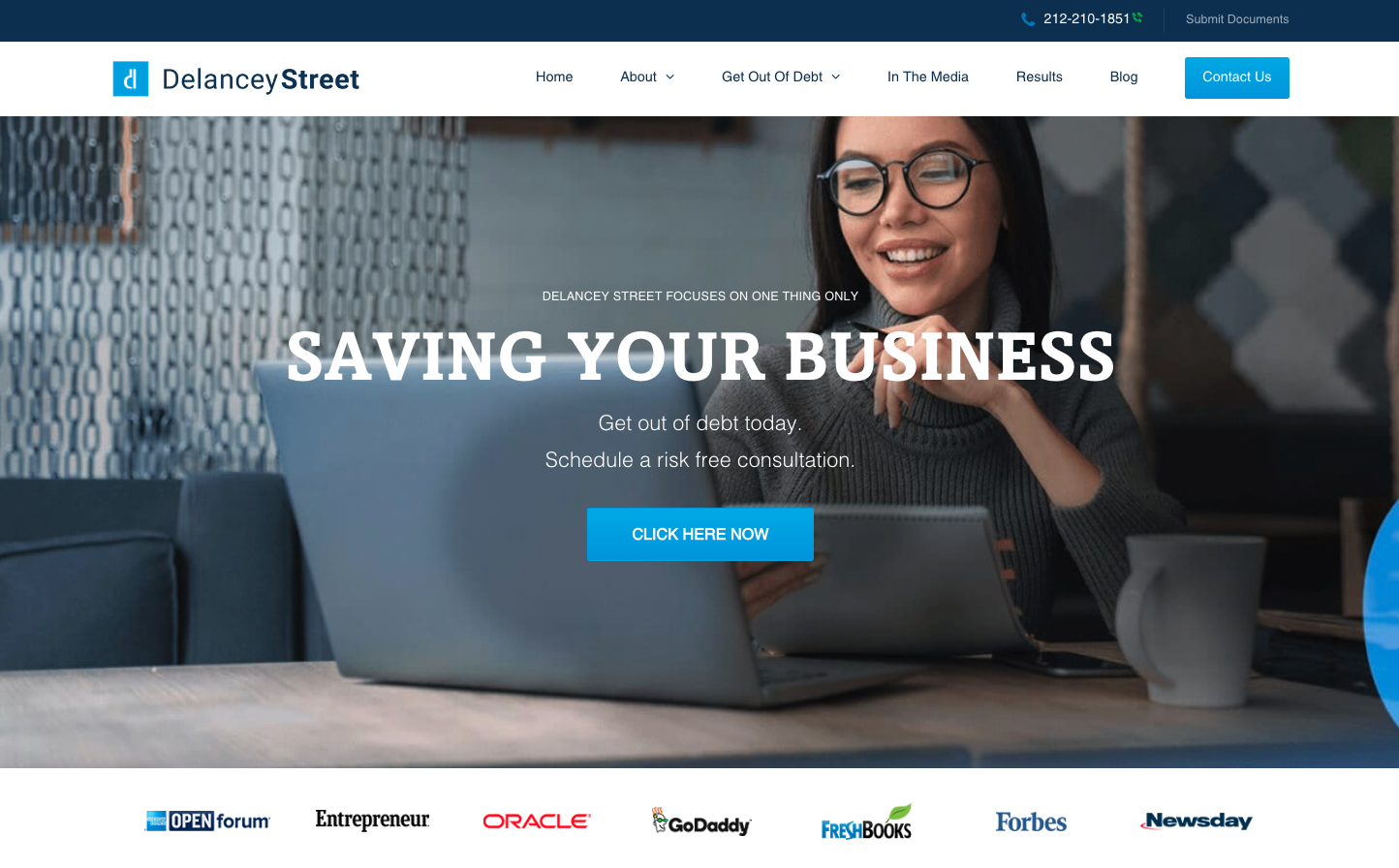IF YOU’RE LOOKING FOR A BUSINESS DEBT SETTLEMENT COMPANY, VISIT DELANCEY STREET. CLICK HERE NOW.

–
Business Debt Settlement Pros and Cons: A Balanced Look
Settling business debt can provide relief, but also comes with drawbacks. This article examines the pros and cons to help business owners make an informed decision.
How Business Debt Settlement Works
- Debt settlement companies negotiate with creditors to reduce total owed debt
- In exchange, business agrees to make lump sum payment that is less than original balance
- Settlement fees paid to company typically range 15-25% of enrolled debt
Potential Advantages of Debt Settlement
- Eliminates or reduces burdensome debt – Main benefit is eliminating debt obligations through settlements that can discount debt 50% or more
- Avoids bankruptcy – Settling debt allows businesses to avoid the severe consequences of bankruptcy
- Stops collections calls and lawsuits – Once enrolled in program, collections calls and lawsuits typically halt during settlement process
- Help managing finances – Debt experts provide guidance on managing cash flow to save for settlements
However, there are also important downsides and risks to consider before enrolling in a business debt settlement program.
Potential Disadvantages of Debt Settlement
- Settlement fees – Debt settlement companies charge 15-25% of total enrolled debt. These fees take away money that could have gone towards paying off creditors.
- Tax consequences – Settled debt may be treated as taxable income. This can result in an unexpected tax bill.
- Credit score damage – Missed payments and settled accounts during program often significantly lower credit scores. This can impair future access credit.
- Risk of lawsuits & collections – Creditors may still sue for payment or send accounts to collections before settlements are reached. This can disrupt business operations.
- No guarantee of settlement – Creditors are not obligated to accept settlement offers. There is risk negotiations fail and no debt relief achieved after paying fees.
Below we dig deeper into these pros and cons to understand the realities of debt settlement for business owners.
Eliminating Burdensome Debt
The primary benefit of debt settlement is the opportunity to resolve debt for substantially less than the amount owed. Settlement discounts often reach 50-60%, providing meaningful savings.For example, a business with $100,000 in credit card debt could potentially settle that balance for around $40,000 to $50,000. This frees up capital to reinvest in growth or recover from financial hardship.However, enrollment in a debt settlement program does not guarantee all debts will be successfully settled. Outcomes depend on factors like total debt amount, creditor policies, and state regulations.Some types of business debt see higher settlement success rates than others. Credit cards and unsecured lines of credit generally settle at better discounts compared to more complicated business loans or commercial mortgages.
Avoiding Bankruptcy
For many companies facing extreme financial distress, bankruptcy can have catastrophic implications. The disruptions to business operations, legal complexities and severe credit damage often lead to companies closing down for good.Debt settlement provides an alternative path to find relief without the need to pursue bankruptcy. For companies on the brink that want to fight to stay open, settlement avoids the “death sentence” of bankruptcy.However, some critics argue debt settlement merely delays the inevitable bankruptcy for deeply troubled companies. And settlement programs can still inflict significant credit damage in their own right.

Stopping Collections Activities
A major benefit of debt settlement is pausing collections efforts from creditors like collection calls and lawsuits.Once accounts are enrolled in a program, the settlement company works with creditors to request halting collections. This provides business owners temporary relief to focus on operations rather than fighting creditors.However, negotiations do not always stop legal collections in their tracks. Aggressive creditors may continue suing for payment in the early stages of enrollment before agreements are in place. This risk is higher for recent defaults compared to older bad debts.
Professional Guidance With Finances
Reputable debt settlement providers offer customized guidance for business owners to better budget, control cash flow and save for settlements. This can provide a roadmap for organizing finances to successfully complete the program.However, owners must be disciplined in following cash flow recommendations. Failing to save adequately for settlements decreases chances of creditor acceptance. And advisors cannot force companies to implement sound financial practices.
The Cost of Settlement Fees
Fees charged by settlement companies can run as high as 25% of total enrolled debt. This compensates them for taking on negotiation risks and administrative costs.For example, a company settling $100K in debt could pay $25K in fees. This is money diverted from actually paying off the debt itself.Some critics argue excessive fees make settlement an overpriced solution given the risks involved. $25K or more spent does not guarantee elimination of the debt. Plus any tax consequences still remain.However, supporters counter that one-time settlement fees are worthwhile if they facilitate deals reducing $100K debts down to $50K or below. And without professional help, most businesses lack the expertise or leverage to negotiate settlements on their own.
Tax Consequences of Settled Debt
Under current IRS rules, if a creditor forgives $600 or more of debt, that cancelled debt is treated as taxable income. This means any savings from settlements could be offset by taxes owed on the forgiven debt.For example, a company settling $100K of debt for $60K realizes $40K of savings. But they may then owe income taxes on that $40K of cancelled debt. This unexpected tax liability can impair cash flow and financial recovery.However, recent proposals have aimed to eliminate taxes on debt forgiven through settlement programs. So future reforms could resolve this issue if enacted.

Credit Score Impacts
A major downside of debt settlement is the damaging effect on credit scores. Missed payments to creditors are noted on credit reports and significantly lower scores. Settled accounts also show as negative marks even after negotiated deals.This can substantially impair access to any new credit for years after completing a program. Many businesses see scores drop by 100 points or more.Critics argue settlement fixes immediate debt problems but sets companies up for future failure by destroying creditworthiness needed to sustain operations long-term. This makes avoiding new financing impossible.However, supporters counter that credit damage is a necessary sacrifice on the path to financial stability. And after a few years of diligent rebuilding, scores can recover to open up financing options again.
Risk of Lawsuits During Program
Enrollment into a debt settlement program does not guarantee collections lawsuits from creditors will halt. Negotiations take time, often 2-3 years. Meanwhile, some creditors lose patience and decide to sue for full repayment anyway.Fighting these lawsuits diverts attention and resources away from operating the underlying business. Having wages or bank accounts garnished can severely impair cash flow.Some settlement companies promise legal protections against lawsuits. But state laws vary widely in regulating creditor collection rights during settlement programs.The best protection is to enroll into a program before debts fall severely behind into default. This minimizes lawsuit risks since creditors have less cause to pursue litigation for recent debts. However, for long-overdue obligations, legal action remains a possibility.
No Guarantee of Settlement Success
Debt settlement companies often market extraordinary claims about eliminating 80% or more of debt. But there is never a guarantee negotiations will succeed.Creditors have no obligation to accept any settlement offers made to them. They may decide settling is not in their interests and peruse full collection efforts instead.If settlements fail, the company has wasted time and paid substantial fees with no debt relief to show for it. Meanwhile collections activities restart and credit damage endures.The greatest risks come from “debt mill” settlement companies making unrealistic promises about easy debt relief. Reputable firms emphasize it takes hard work and discipline to see success.
Settlement outcomes depend on the reasonableness of creditors, total debt amounts, company savings capacity and state regulations. There are many variables and uncertainty in the process.
Key Considerations Before Enrolling
- Have open communication with creditors before choosing settlement – some may offer internal hardship programs with better terms
- Consider consulting a business finance lawyer – An attorney can advise if settlement or bankruptcy makes more financial sense based on your situation
- Research and vet settlement companies thoroughly – Debt settlement is poorly regulated with many unethical players
- Enroll as early as possible – Recently defaulted debt settles better as creditors have less cause for litigation
Making an Informed Decision
Debt settlement holds an appealing promise of eliminating burdensome debts weighing down a business. But the realities involve meaningful financial risks and tradeoffs.There is no “easy button” for debt relief. Owners must make difficult choices given their specific situation.Hopefully examining debt settlement pros and cons leads to more informed decisions. As with any major business financing decision, careful deliberation is key.
–
IF YOU’RE LOOKING FOR A BUSINESS DEBT SETTLEMENT COMPANY, VISIT DELANCEY STREET. CLICK HERE NOW.
–








